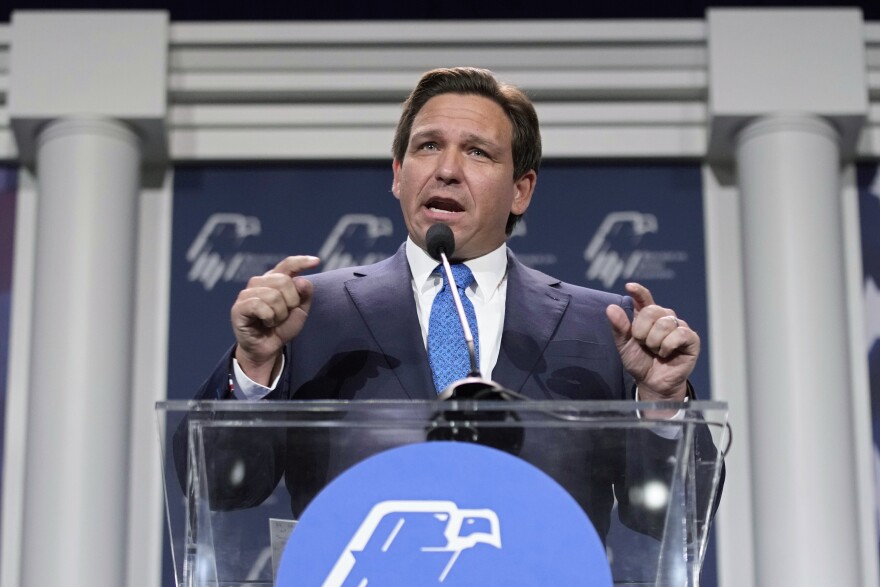Governor Ron DeSantis signed a new law last week that creates harsher penalties for retail theft, an issue that has garnered national attention in recent years. But data shows the governor and politicians across the political spectrum may be overselling the frequency of retail theft.
Florida’s new legislation cracks down on organized retail theft, making it a third-degree felony to commit theft in a group of five or more individuals and a second-degree felony if criminals use social media to solicit others to participate.
DeSantis said during the bill signing that the effort is an attempt to crack down on criminals and keep retail theft numbers down in Florida.
“We’re a law-and-order state. If you’re gonna do the crime, you’re gonna do the time. We care more about protecting public safety and the rights of law-abiding citizens than we do about coddling criminals or making excuses for them,” he said.
The governor had backed the measure for months before officially signing it. During that time he has incorrectly referenced data on several occasions, giving an inflated impression of the scale of retail theft.
Last week, he said that retail theft in America reached $112 billion last year. That number came from the National Retail Federation, and wasn’t just retail theft, but also included retail shrink. Read Hayes, University of Florida criminologist and director of the Loss Prevention Research Council, said shrink includes all the way businesses lose product.
“It’s partly error. I just lost it, it's misplaced. It's not where it's supposed to be. Turns out, we got three trucks out there somewhere we didn't think about with full of jeans. Part of it is employee dishonesty. They steal themselves or help compatriots, some kind of collusion. And then of course, there could be external theft, you know, shoplifters or burglars at night or something like that,” he said.
In the Retail Federation’s numbers, retail theft only accounted for $40 billion of the $112 billion in losses it says retains experienced last year. National retail theft numbers are only a drop in the bucket compared to the industry’s revenue. Last year, America’s retail industry made $7.6 trillion in revenue. The industry sold 192 times more product than the goods they lost to retail theft.
Hayes says how much a retailer is targeted by retail theft largely depends on the type of goods it sells.
“On average, retailers might say 30% of my loss is due to external theft, shoplifting and things like that. Let’s say most of the participants are not furniture stores, where maybe it's only 10%, maybe the majority are drug and other stores, and maybe it's 40, or 60%,” he said.
During the bill signing ceremony, DeSantis contrasted Florida with states like California and New York for how they have handled retail theft. Fellow conservative Gov. Greg Abbott has also frequently attacked Democrat-controlled states and cities over the issue.
But Democrats have also utilized retail theft crackdown rhetoric, says University of Southern Maine criminologist Brendan McQuade. New York Governor Kathy Hochul backed a $45 million plan last month to target retail theft.
McQuade said he thinks the increased focus on retail theft is due to a shift in how politicians and the media have covered crime issues since the George Floyd protests.
“There's kind of a public turn towards law and order. Lots of anxiety around issues of urban disorder, unhoused people, substance use. I think this type of rhetoric has some purchase in this cultural moment, in the political moment, and the retailers are using it to their advantage,” he said.
McQuade argues that retailers are also helping to pump the shoplifting narrative to overshadow industry challenges after the COVID-19 pandemic, like understaffed stores and the shift to digital commerce.
“Theft is kind of a blameless issue, right? Theft doesn't tarnish the management the way, mismanaging inventory, or merchandising decisions, or staffing decisions, doesn’t stick to them in the same way,” he said.
Florida’s new law will take effect on October 1st.

